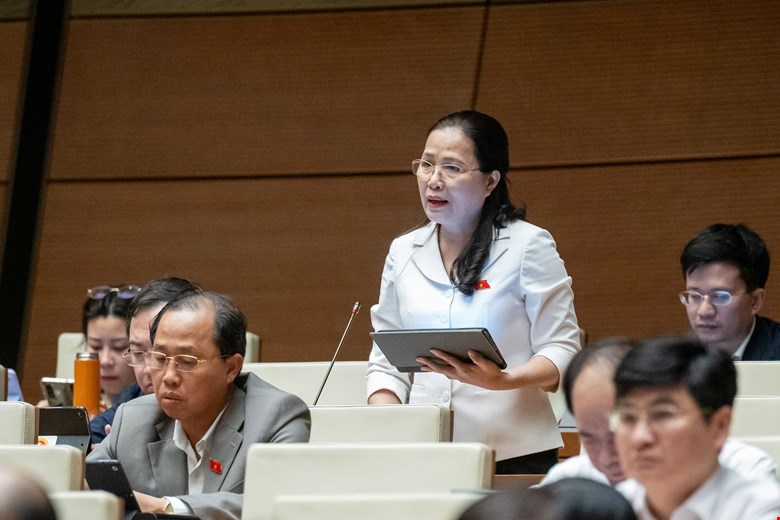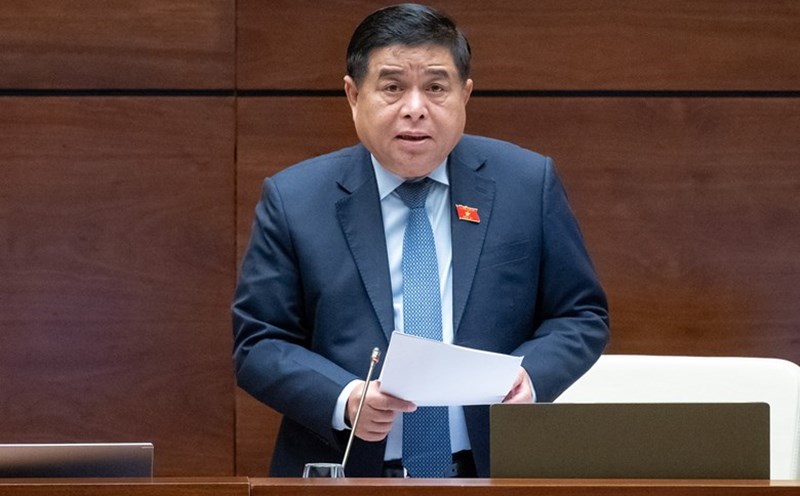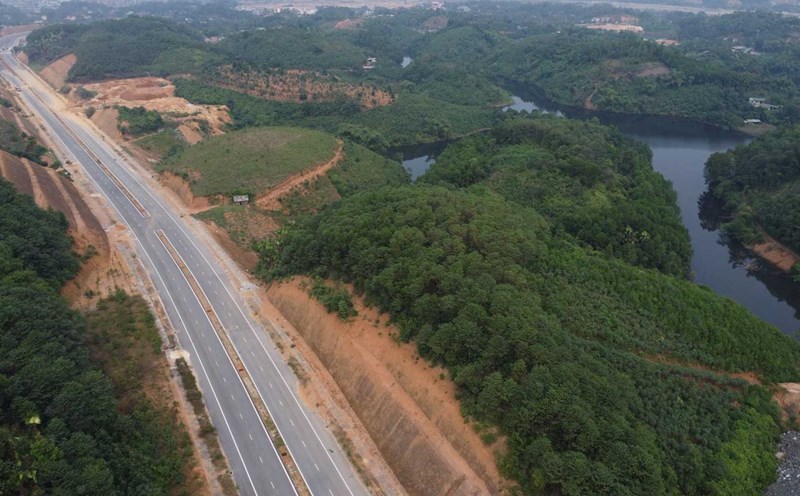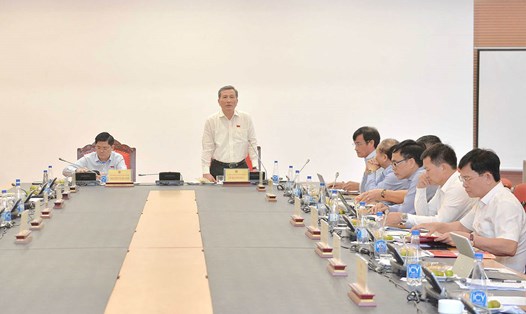On the afternoon of November 5, the National Assembly discussed in the hall a number of contents with different opinions in the draft Law on Geology and Minerals.
Speaking, delegate Truong Trong Nghia (HCMC delegation) affirmed that minerals are an important component, contributing significantly to the development of the country. Currently, the draft law divides minerals into groups, in which group 1 is important metals and energy such as rare earth, titanium, and flammable ice.
According to delegates, these minerals serve digital transformation, development of semiconductor industry, electric vehicles, and military aviation.
The representative of the Ho Chi Minh City delegation stated that the draft law has a definition of important strategic minerals but does not have specific regulations on these minerals. Because each resource has a different important strategy.
Meanwhile, after being licensed, explorers and exploiters have the right to transfer or sue the state in case of disputes.
Mr. Truong Trong Nghia gave an example of the transfer process such as A to B, B to C, C to D. However, subjects B, C, D may be abroad, making it difficult to know who is the real owner of the exploitation and exploration project.
Therefore, the delegate proposed to have a list of important and especially important strategic minerals, and at the same time, decisions on exploration, exploitation and recovery shall be made by the Prime Minister.
For example, in some countries, the Government can intervene to prevent transfers when it affects long-term interests, sovereignty, or national security.
Regarding positional resources, delegates proposed to restore and clarify that positional resources are due to nature and location, and to stipulate important strategic minerals and minerals with important positional resources in a separate list, assigned to the Government for decision.
Along with that, the HCMC delegate suggested that the draft law should be designed according to the principle of saving resources, not leaving a burden on the next generation.
Problems with mineral exploitation licensing
Regarding mineral exploitation licensing, delegate Do Thi Lan (Quang Ninh Delegation) said that the draft law stipulates that the exploitation period includes basic construction time and exploitation time.
In which, the exploitation period is determined according to the mineral exploitation investment project, not exceeding 30 years and can be extended many times upon request of the organization or individual with the exploitation license. This total period does not exceed 20 years.

The draft law stipulates that if the extension period expires, a re-issuance request can be made.
Ms. Do Thi Lan said that the regulations on the period of exploitation and extension of mineral exploitation are not consistent with the Central Government's policy on administrative reform, removing obstacles, reducing time and costs for businesses and are not consistent with the provisions of the Investment Law.
According to regulations, the preparation time for basic construction of a project takes 8-10 years. Meanwhile, the Investment Law stipulates that for projects in industrial zones, it is no more than 70 years, and for projects outside this zone, it is no more than 50 years.
The delegate pointed out that in reality, many coal mining projects have been implemented for over 40 years, many projects for 43-45 years including licensing and extension time.
"Many businesses have spent a lot of time preparing documents to request an extension of coal mining. Each extension is only for 2-5 years, and they have to work while preparing to apply for an extension license," said the delegate.
Delegates said that extending the mining period many times is very inappropriate. Many delegates pointed out that the provisions on the time limit for granting mineral exploitation license extensions in the draft law have unreasonable points.
Delegates proposed to study regulations on the extension period of mineral licenses based on mineral reserves and geological conditions of the minerals. Accordingly, the project adjusts regulations on the license period not exceeding 50 years, and the extension period not exceeding 15 years.











